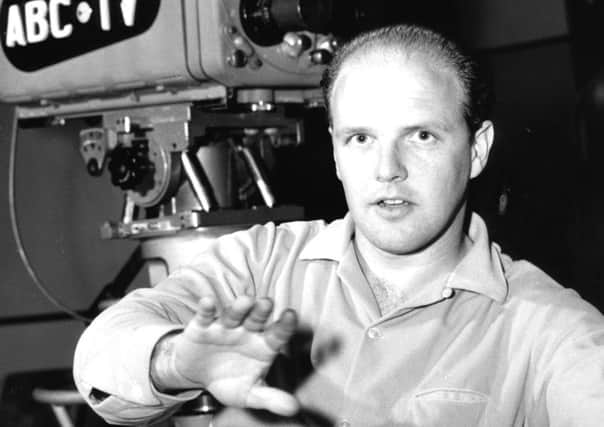Obituary: Raymond Menmuir, Australian TV producer


Australian producer and director Raymond Menmuir helped to set the standard for television drama in his homeland before bringing his skills to British TV. He left his mark most indelibly on The Professionals, which teamed Lewis Collins’s former SAS soldier Bodie with Martin Shaw’s ex-detective Ray Doyle as agents in the fictitious CI5, fighting serious crimes and terrorism with guns blazing and the screech of car tyres.
When the programme began in 1977, some critics scoffed at storylines that stretched believability, as well as the casting of Gordon Jackson – known to the nation as Upstairs Downstairs butler Hudson – as the pair’s boss, George Cowley. But Menmuir took over as producer for the second series a year later and steered it through three further runs (1979-83).
Advertisement
Hide AdAdvertisement
Hide AdHe gave it a new title sequence, moved the action at a greater pace, took it entirely out of the studio on location and, similarly, moved Cowley away from his CI5 base and “into the field” more – despite the war wound that had left him with a limp in the programme’s original back story.
However, Shaw despised his permed curls and what he saw as the one-dimensionality of his character and the drama, and vetoed repeat screenings for many years because he regarded it as a threat to his career.
Whatever Shaw’s thoughts, and those of some viewers, The Professionals attracted audiences of up to 18 million in Britain, was popular abroad and provided believability for some – notably Libyans besieging the British Embassy in Tripoli and shouting “Down with CI5!” in response to the stand-off that followed the 1984 killing of police officer Yvonne Fletcher outside the Libyan People’s Bureau in London.
In Britain, The Professionals found a place in popular culture and was sent up in The Two Ronnies, Harry Hill’s TV Burp, Comic Strip television films and a commercial for Nissan cars. However, a 1999 Sky 1 remake, CI5: The New Professionals, without Menmuir, failed to catch on.
With script editor Gerry O’Hara and writer Ranald Graham, Menmuir took The Professionals formula to Australian television as Special Squad (1984-5), starring Alan Cassell as Detective Inspector Don Anderson, in charge of Sergeants Joel Davis and Greg Smith (played by John Diedrich and Anthony Hawkins), but it was cancelled before the end of the second series.
“I don’t think one can ever predict what will make a show a hit,” Menmuir told Melbourne newspaper The Age at the time. “If I could do that, I’d be a very, very, very rich man.”
Menmuir returned to Britain to recreate the fast-paced action of The Professionals in C.A.T.S. Eyes, taking over as producer for the second and third series (1986-7). His first task was to replace Rosalyn Landor, who had left after playing – alongside Jill Gascoine and Leslie Ash – one of the detectives in an all-female agency working for the Home Office. He cast Tracy-Louise Ward and was the steady hand that ensured the programme was a Saturday-evening ratings hit.
Raymond Edward Menmuir was born in Perth, Western Australia, the son of Edward, who sold motor insurance, and Dorothy (née Williams), and had three younger sisters.
Advertisement
Hide AdAdvertisement
Hide AdOn leaving Wesley College, Perth, in 1948, he joined the city’s Daily News as a reporter and spent his evenings acting and producing in local theatres. This led him to become a producer with ABC radio. In 1956, when ABC launched Australia’s television service, Menmuir switched to the new medium.
Most programmes were broadcast live and he was recognised as one of the country’s leading drama directors. He made JB Priestley’s The Rose and Crown, only the second play to be broadcast on Australian TV, but his greatest achievement was mounting a live, two-hour production of The Life and Death of King Richard II (1960), which he also produced. It was a complex operation that used all three of ABC’s Gore Hill TV studios.
In 1961, he headed for Britain, where he initially directed many television plays and popular drama series for ITV, including Redcap (1964-6), starring John Thaw as a military policeman, and two 1963 episodes of The Avengers.
Menmuir was one of the directors of Britain’s first rural soap, Weavers Green (1966), centred on a Norfolk village’s veterinary practice run by Alan Armstrong (Grant Taylor) and Geoffrey Toms (Eric Flynn). It included appearances by Wendy Richard as a barmaid and Kate O’Mara as a young vet, and most of the serial was shot on location, on videotape instead of film, which was pioneering at the time.
Soon switching between ITV and the BBC, Menmuir directed The Wednesday Play (1967-8), The Troubleshooters (1967), Parkin’s Patch (1969-70), The Befrienders (1972), Adam Smith (1972), The Onedin Line (1976) and The Duchess of Duke Street (1976).
He also made 12 episodes (1971-4) of Upstairs Downstairs – the “original” Downton Abbey – which followed the wealthy Bellamy family and their servants at 165 Eaton Place, in London’s Belgravia, between 1903 and 1930, was sold around the world and won three Emmy Awards.
His first British series as producer was Headmaster (1977), starring Frank Windsor, and he was associate producer of the 1982 SAS film drama Who Dares Wins, starring Lewis Collins.
After producing The Professionals, C.A.T.S. Eyes and Gentlemen and Players (1988-9), a “yuppie” drama about two business rivals that reflected the aspirational 1980s, Menmuir retired at the age of 60 and returned to Australia.
Advertisement
Hide AdAdvertisement
Hide AdHe is survived by his partner, actress and producer Wendy Blacklock, Anna, the daughter of his first marriage, to Heidi Isenmann in 1957, and Fiona and Iain, the children of his second marriage, to Jennifer Cooper in 1968. Both marriages were dissolved.